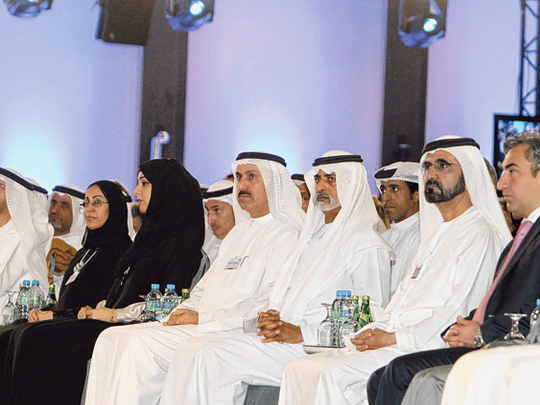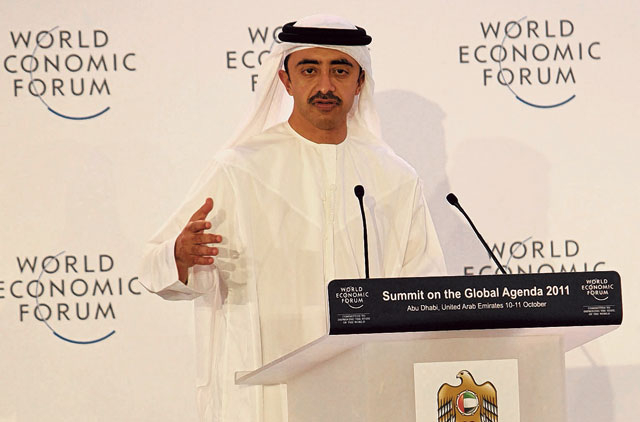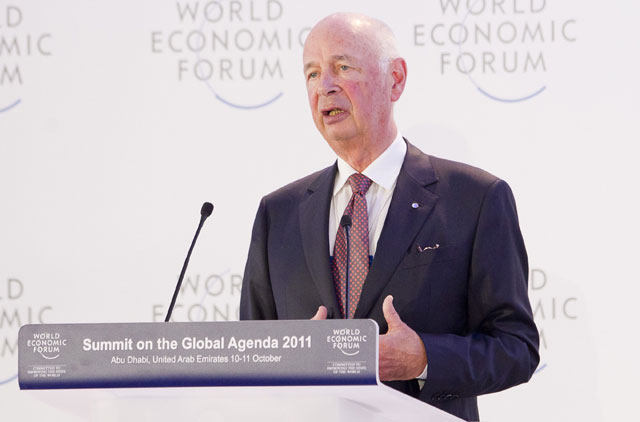
Abu Dhabi: The sovereign debt crisis in Europe and issues currently confronting the US economy are challenges for all nations of the world, though the UAE is relatively better equipped through its prudent policies to handle any difficulties arising from the situation, said a top official.
Speaking at a press conference yesterday at the World Economic Forum Summit on the global agenda in the UAE capital, Sultan Bin Saeed Al Mansouri, UAE Minister of Economy, said: "Our exposure there [in the US and Europe] is very limited. [However] we are ready to face any difficulties that might arise for the UAE's financial institutions and banks."
Al Mansouri said living in an "interconnected world means events in one country can significantly impact others"
"Our expanded international cooperation continues to grow," he added.
Addressing global issues
The two-day event is addressing key issues confronting the global economy today including food security, financial and economic issues, water, climate change and renewable energy.
About 800 experts in their respective fields from all corners of the globe have converged on Abu Dhabi to participate in the summit.
Al Mansouri said though in terms of territory the UAE may be small, in economic terms, the "country is quite big and strong".
He said in the UAE there's a specialised committee that meets on a regular basis to monitor the situation at the banks and to study the consequences of any global event on the local economy.
"The crisis of 2008 taught us to restructure our economy and focus on certain sectors. We aim to increase our exposure to tourism, industry, trade, financial services and logistics," said Al Mansouri.
Hosting this summit shows the UAE's commitment to be an active participant in all critical global issues, he added.
Mohammad Omar Abdullah, Undersecretary in the Abu Dhabi Department of Economic Development (DED), said the summit demonstrates the pace of development in the UAE to the world and is taking place against the backdrop of unprecedented global challenges.
"It's necessary to deal with global issues at the global level and to develop new models to tackle the challenges," he said.
Abdullah said Abu Dhabi has been working to create a sustainable knowedge-based economy based on the Abu Dhabi-2030 vision, which would generate income and jobs.
He said the aim was to have the "non-oil sector contribute more than 60 per cent to the emirate's economy that would provide a more sustainable economic foundation for the future".
"Last year, the non-oil sector contributed half of the emirate's gross domestic product for the first time," said Abdullah.
The focus of Abu Dhabi is now on building its export-oriented sectors, he added. Citing two examples, Abdullah said while Abu Dhabi's Mubadala was building components for aircraft-maker Airbus, its Masdar initiative was pioneering global research in non-conventional energy and developing alternative energy sources.
However, he added that Abu Dhabi was aware of its "abundant natural resources and the financial strengths they provide".
(Shehab Makahleh in Abu Dhabi contributed to this report.)














